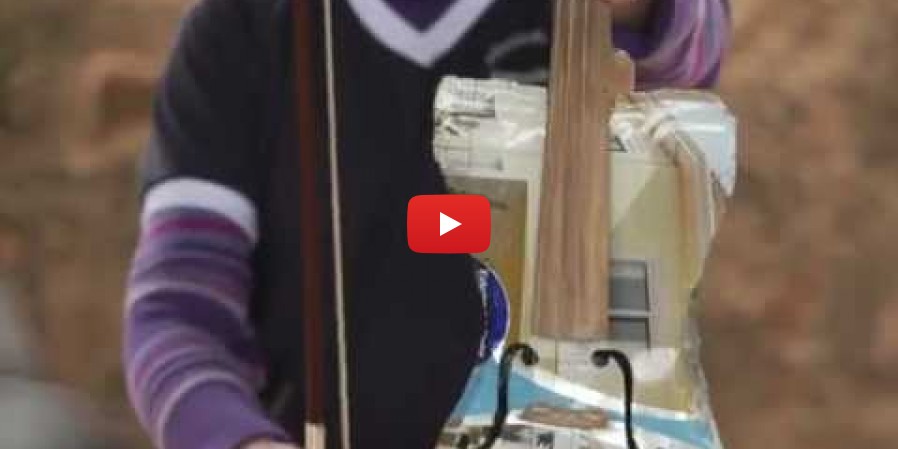Amazing Facts About Iraq

Opposed to the present picture,Iraqwas a rich medley of culture, heritage, music, cuisine, learning, and so much more. This country that is in the news now for all the wrong reasons was once a teeming cauldron of not one but numerous successive civilizations that flourished and effaced with time, leaving behind their imprints in the form of wisdom, practice and, beliefs. This West Asian country shares its border with Kuwait and Saudi Arabia in the south, Jordan in the west, Syria in the northwest, Turkey in the north, and Iran in the east. Iraq spreads over the northwestern Zagros mountain range, the eastern part of the Syrian Desert and the northern Arabian Desert. The two ancient rivers called Tigris and Euphrates that meander through the country have nurtured its people for ages. Due to the recent political upheaval, Iraq is perhaps at the most decisive juncture in modern history. Browse below to know some of the most amazing facts about the country.
Fast Facts
Capital: Baghdad
Largest City: Baghdad
Official Language: Arabic and Kurdish
Demonym: Iraqi
Religion: Islam (Shi’a)
Independence: 3 October 1932
Republic: 15 October 2005
Area: 438,317 sq. km
Population: 30,399,572 (2011 estimate)
Currency: Iraqi Dinar (IQD)
National Bird: Chucker Partridge (Alectoris chukar)
National Animal: Lion
Interesting And Fun Facts About Iraq
- Iraq in Arabic means ‘deep rooted’ or ‘the fertile’.
- Iraq’s official name is the Republic of Iraq.
- The official language of Iraq are Arabic and Kurdish, however, languages such as Assyrian, Armenian, Neo-Aramaic, and Azeri are spoken too by the minorities.
- Mesopotamia, one of the world’s ancient civilizations, flourished in the area between the rivers Tigris and Euphrates.
- Iraq’s majority population comprises of Shiite followed by Sunni and Christians.
- Iraq is divided into eighteen governorates (or provinces), which are further divided into districts (or qadhas).
- The main ethnic groups that Iraq is composed of are Arab, Kurdish, Turkomans and Assyrians.
- Baghdad is an ancient city that dates back to the Mesopotamian era.
- The word Mesopotamia means between the two rivers, or actually between the Tigris and Euphrates Rivers.
- The highest point in Iraq is called Haji Ibrahim that stands at an altitude of 3600 m.
- The region between Tigris and Euphrates River is known to be the ‘cradle of civilization’ and the ‘birthplace of writing’.
- Sumer that was situated in the South of Mesopotamia was one of the earliest known civilizations in the world that dates back to as early as 4th millennium BC.
- The Sumerian site called Eridu (Abu Shahrain) is one of the earliest known human settlements that date back to 5000 BC.
- Satellite images of Northern Iraq and Syria reveal ancient roads that were built for trade and transportation.
- The hanging Garden of Babylon in the palace of Nebuchadnezzar II was considered as one of the seven wonders of the ancient world.
- At the age of 32, Alexander the Great died in the palace of Nebuchadnezzar II, in Babylon.
- The founder of chemistry, Jabir Ibn Haiyan was a doctor and an alchemist in Iraq, during the middle ages.
- Iraq gained independence from Britain in 1932 and became a republic in 1958.
- The Noah’s ark is believed to have been built in Iraq.
- It is believed that the Garden of Eden was in Iraq.
- In July 1979, Saddam Hussein took over as the president of Iraq.
- The eight year long Iran-Iraq war started in 1980.
- In August 1990, Iraq invaded Kuwait and the United Nations asked the Iraqi forces to immediately leave Kuwait. On Iraq’s refusal to withdraw, an international military operation known as Desert Storm was launched to force Iraqis out of Kuwait.
- The 1998 operation Desert Fox, launched against Iraq’s failure to comply with the United Nations Security Council resolutions and their interference with the United Nations Special Commission officers, destroyed much of Iraqi’s infrastructure.
- In March 2003, the US and British forces invaded Iraq by claiming that the Iraqi government is purportedly keeping the weapons of mass destruction. However, the comprehensive U.S. government report declined the fact.
- After five decades, the elections held in 2005, resulted in the winning of Shi’a dominated party.
- The traditional music of Iraq is called maqam, which is based on Arabic poetry.
- It is not considered impolite in Iraq to eat food without utensils or gobble up quickly. In fact, it is considered by as the sign of appreciating the food as delicious.
- Iraqis feel extremely offended if the family pet comes near the table during meal.
- The national dish of Iraq is Masgouf (impaled fish) and its national cookie is Kleicha. Both the foods are thousands of years old.
- Inventions, such as, the 60-second minute, 60-minute hour and 360 degree circle, the writing system, and the first accurate calendar originated from Iraq.
- Licorice, used for thousands of years for its health benefits, is a native plant of Iraq. In ancient times, soldiers used to chew the plant to avoid thirst.
- Honey is a very important source of income and food for Iraqis who have been keeping bees for almost 5,000 years.
- Mud was very useful in ancient Iraq for making bricks that built huge ziggurats. Mud also helped Sumerians of ancient Iraq to invent writing on tablets of clay.
- Iraq is actually two countries with two major ethnic groups: the Arabs and the Kurds.
- Iraq has the second largest reservoir of oil in the world, with almost 143.1 barrels of oil. But the daily oil production in Iraq is only 2.9 million barrels per day.
- Iraq had a very good education system. However, the ravages of the Gulf War and subsequent UN sanctions led to the deterioration of quality education which in turn lowered the literacy rate to about 40%.
- Baghdad became the capital of the great Islamic Empire in 762 AD. Ruled by Abbasid dynasty, the kingdom was built exactly in a perfect circle on the Babylonian ruins.
- According to the CIA World Factbook, the life expectancy in Iraq is around 69.01 years, which ranks 146th in the world.
- Iraq is one of the top three date producers in the world.
- The world’s first written story, The Epic of Gilgamesh that narrates the story of a king who fights to preserve his kingdom, was written in Iraq, by John J. Miller.
- Ur, Babylon, Nineveh, Ctesiphon, and Baghdad all located in Iraq, are among the oldest urban centers in the world.









